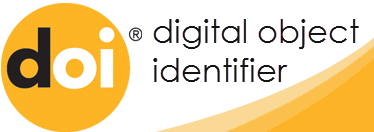টেকসই উন্নয়ন অর্থায়নে সুকুকের ব্যবহার : পরিপ্রেক্ষিত বাংলাদেশ | Application of Sukuk for Financing Sustainable Development : Bangladesh Perspective
DOI:
https://doi.org/10.58666/iab.v19i74-75.247Keywords:
Sustainable, Economic Development, Infrastructure, Sukuk, Bangladesh, টেকসই, অর্থনৈতিক উন্নয়ন, অবকাঠামো, সুকূক, বাংলাদেশAbstract
Like other countries Bangladesh needs a well-functioning and efficient infrastructure as it promotes economic growth and development. In order to achieve the status of an upper middle-income country by 2031, it is important to address the infrastructure gaps in Bangladesh. As traditional sources of funds are inadequate in financing infrastructure projects, Bangladesh needs to utilize sukuk, Shari’ah complaint investment certificate, to supplement traditional sources for financing infrastructure projects in order to promote GDP growth aiming at employment generation and poverty reduction. The present paper focuses on significance of infrastructures for achieving sustainable growth, analyzes concept and types of sukuk, and examines its potentials in financing infrastructure projects in Bangladesh. It also elucidates challenges of issuing sukuk in Bangladesh and provides policy options to face the challenges. The article underlines the potentiality of Sukuk to play a major role in financing development of Bangladesh by expanding the sukuk market with necessary policy support.
সারসংক্ষেপ : অবকাঠামো টেকসই অর্থনৈতিক উন্নয়নকে ত্বরান্বিত করে বিধায় অন্যান্য দেশের মত বাংলাদেশেরও একটি কার্যকর ও দক্ষ অবকাঠামো থাকা প্রয়োজন। ২০৩১ সালের মধ্যে উচ্চ-মধ্যম আয়ের দেশের মর্যাদা অর্জনের লক্ষ্যে বাংলাদেশের অবকাঠামোর ঘাটতি পূরণ করা জরুরী। ইসলামের দৃষ্টিতে প্রচলিত উৎসসমূহ থেকে অবকাঠামোর অর্থায়ন করা পুরোপরি সম্ভব নয়। এক্ষেত্রে ইসলামী বিনিয়োগ সনদ ‘সুকূক’ অবকাঠামো প্রকল্প অর্থায়নের প্রচলিত উৎসসমূহের পাশাপাশি অন্যতম টেকসই হাতিয়ার হিসেবে ব্যবহার করা যায়, যা উচ্চ প্রবৃদ্ধিকে ত্বরান্বিত করে কর্ম সৃজন ও দারিদ্র্য বিমোচন করতে পারে। আলোচ্য গবেষণা প্রবন্ধতে টেকসই প্রবৃদ্ধি অর্জনে অবকাঠামোর গুরুত্ব, সুকূকের ধারণা ও প্রকারভেদ এবং বাংলাদেশে সুকূকের মাধ্যমে উন্নয়ন প্রকল্পসমূহে অর্থায়নের সম্ভাবনাসমূহ বিশ্লেষণ করা হয়েছে। এছাড়া, প্রবন্ধটিতে বাংলাদেশে সুকূকের চ্যালেঞ্জ ও করণীয় বিষয়সমূহ তুলে ধরা হয়েছে। প্রবন্ধের মাধ্যমে প্রমাণিত হয়েছে যে, প্রয়োজনীয় নীতি সমর্থনের মাধ্যমে সুকূক বাজারকে সম্প্রসারণ করা হলে বাংলাদেশের উন্নয়ন অর্থায়নে তা ব্যাপক ভূমিকা রাখতে পারে।
References
AAOIFI, Accounting and Auditing Organization for Islamic Financial Institutions. 2023. Shari’ah Standards (Bangla Version). Central Board For Islamic Banks Of Bangladesh
Abdullah, Abdul Aziz., Ahmad Shukri Yazid, Adam Abdullah, and Mohd Shahril Kamarudin. 2014. ʻʻRisk in funding infrastructure projects through sukuk or Islamic bondsʼʼ International Review of Management and Business Research 3:2 (June), 915-928.
Al Bashir, Muhammad, and Al Amine, Muhammad. 2008. “Sukuk market: Innovations and challenges” Islamic Economic Studies. 15: 2. 1-22.
Al Saeed, Khalid Sulaiman. 2012. ʻʻSukuk Issuance In Saudi Arabia: Recent Trends And Positive Expectationsʼʼ. Doctoral dissertation, Durham University.
Ali, Salman Syed. 2005. “An Introduction to Ijara Sukuk: Current Structures and Future Prospects” Islamic Capital Market Products: Developments and Challenges. Section 3.2. Jeddah: Islamic Research and Training Institute, Islamic Development Bank
Bangladesh Bank (2020). Ijarah Sukuk Prospectus, 2020
Bangladesh Bank. 2022. “Developments of Islamic Banking in Bangladesh, April-June, 2022”
BEXIMCO, 2021. Sukuk Prospectus
Chazi, Abdelaziz, Narendar Rao, and Lateef A. M. Syed. 2014. ʻʻTapping funds for development: A case for sukuk financingʼʼ Journal of Islamic Economics Banking and Finance. 10:3, 171-198. DOI: 10.12816/0025959
DIFC Sukuk Guidebook (2009). Dubai International Finance Center
Fazlur Rahman, M. 2015. Al Muʻjam Al Wāfī. Riyad Prakashani
Global Infrastructure Outlook. 2017. Oxford Economics & Global Infrastructure Hub
Godlewski, Christophe J., Laurent Weill, and Rima Turk Ariss. 2013. ʻʻSukuk vs. conventional bonds: A stock market perspectiveʼʼ. Journal of Comparative Economics. 41:3, 745-761. DOI: 10.1016/j.jce.2013.02.006
IFSB (2020). Islamic Financial Services Industry Stability Report 2020, IFSB, Malaysia
IIFM (2021). IIFM SUKUK REPORT 2021
Kamil, Karmila Hanim, Marliana Abdullah, Shahida Shahimi, and Abdul Ghafar Ismail. 2010. ʻʻThe subprime mortgages crisis and Islamic securitizationʼʼ International Journal of Islamic and Middle Eastern Finance and Management. 3:4, 386-401. DOI: 10.1108/17538391011093315
Solé, Juan. 2008. "Prospects and challenges for developing corporate sukuk and bond markets© International Monetary Fund. Lessons from a Kuwait case study" International Journal of Islamic and Middle Eastern Finance and Management.1:1, 20-30. DOI : 10.1108/17538390810864232
Wilson, Rodney. 2008. "Innovation in the structuring of Islamic sukuk securities." Humanomics. 24:3, 170-181. DOI: https://doi.org/10.1108/08288660810899340
Downloads
Published
Issue
Section
License
Copyright (c) 2023 Md. Golzare Nabi, Md. Sanaullah Talukder, Evanta Hashem Katha, Mashrura Kabir Shaeba

This work is licensed under a Creative Commons Attribution 4.0 International License.





